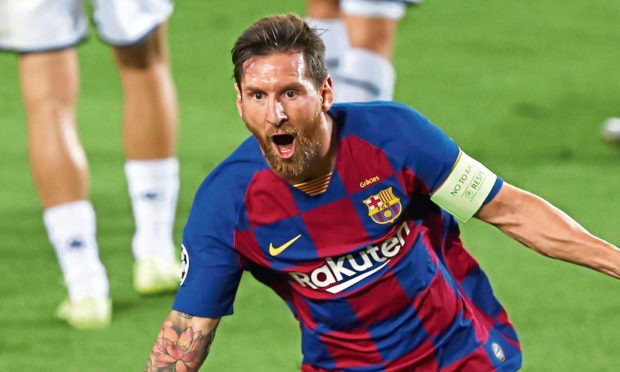Modern elite football presents a moral quandary to the fan. The business of the game has become as important as what happens on the pitch itself, and these two aspects – the first a foul wormery, the second a breathless pursuit of beauty and glory – are often hard to reconcile.
The money involved is obscene, of course. The sweaty, manipulative grip of too powerful and too rich football agents, the side deals cut for the top players and their families, the distorting TV billions, the creative accounting that enables clubs to shimmy round the Financial Fair Play rules, the oil-rich states and oligarchs that buy and deploy grand old institutions as new weapons of soft power.
Like the sausage-making process or one of Luis Suarez’s Hannibal Lecter moments, it sometimes feels healthier not to look. The brown envelope has been replaced by a wonga-filled dump truck.
This is why many neutrals were happy to see Bayern Munich defeat Paris Saint-German in the recent Champions League final. Bayern are deemed to have done things the “proper” way, growing their own talent and operating astutely and relatively cheaply in the transfer market.
The official supporters’ club owns more than 80% of Bayern’s joint stock, and the club’s matchday ticket prices are comparatively affordable. They have an ethical core.
In contrast, the French champions are owned by Tamim bin Hamad Al Thani, the bottomless-pocketed emir of Qatar, who likely thinks ethics is the birthplace of Frank Lampard.
PSG have spent almost a billion pounds on transfers since 2011, including a world record £200 million on the Brazilian wizard Neymar and £130m on Kylian Mbappe, the best young player in the world.
Football fans prize authenticity – in the abstract at least – and treasure loyalty to the badge and the fabled “one-club player”.
The accusation that this or that team has “bought success” is often used to criticise the highest flyers. Players regarded as overly mercenary are not forgiven.
For all this, the visible bit of football, the iceberg tip, 11 v 11 on a flat green rectangle, is pretty much the same old game, as beloved as ever – more than ever, given today’s global audiences and markets.
It’s my belief that the sport itself has never been better, the players as fit and as skilful, the pitches so perfectly manicured, the drama as high, the tactics and strategies more expert and fascinating – with managers like generals plotting battles on a map or mad scientists concocting in a lab.
At the pinnacle of it all is the man who most completely ties together the two worlds, good and bad. Lionel Messi is both the greatest player of all time and the richest.
He is a one-club player, having been at Barcelona since the age of 13, who unexpectedly, at 33, now looks likely to leave. The financial background to Messi’s career is as murky as hell – he and his father have been convicted of tax fraud and the internal politics at Barca are horrible. Yet he has produced more sublime performances on the field than anyone else, ever.
One of my favourite quotes about the wee genius is from Xavi, his long-term Barca teammate and a player of huge distinction himself: “Messi does everything well. If he decides to dribble past you, he dribbles past you. If he wants to give a pass, he gives the best assist in the world. If he takes free-kicks, he sticks them in the top corner. If he wants to take the ball off you, he takes the ball off you. If you put him at centre-half… well, he’d also be the best centre-half in the world.”
The other comes from Pep Guardiola: “Don’t write about him, don’t try to describe him. Just watch him.”
Every number attached to Messi is off the scale. He has won six Ballons d’Or, the award for the best player in the world each season.
He has scored more than 50 goals in six different seasons. Data analysts report that his stats on goals, assists, free-kicks, through balls, one-twos, and of course dribbles, are practically supernatural. On top of this, he has played more minutes than any other footballer in La Liga in the past decade. He is individually deadly, a whole-hearted team player, and utterly consistent.
The financial numbers are mountainous, too. As he attempts to win his freedom from Barcelona, he must navigate a buy-out clause set at 700 million euros.
He is wealthy beyond measure, his annual salary is thought to be about £54 million, so if Manchester City sign him as predicted, his wages will cost £1 million a week.
Messi also receives annual bonuses from Barca of about £13 million, and is estimated to pull in a further £24 million in sponsorship and endorsement deals.
This, then, is modern football – beauty and the beast. And yet few fans grudge Messi, the icon of the best and the worst, his rewards, for he has given so much back and so thoroughly fulfilled his talent.
The idea of him coming to the Premier League, even at an advanced age, is intoxicating. Better than Maradona, better than Pele. The best at anything, anywhere.
As Pep says, just watch him.











